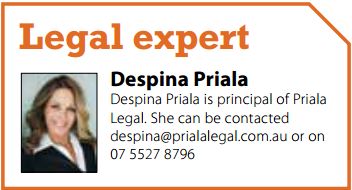03/05/2013
Despina Priala advises on buyers’ rights whenever the features of a property have been misrepresented
Q: I bought a property in Brisbane a year ago. It was advertised and sold as a dual income, dual living property but was basically a three-bedroom, single-level house with a double garage on one end and a two-bedroom unit on top of the garage.

